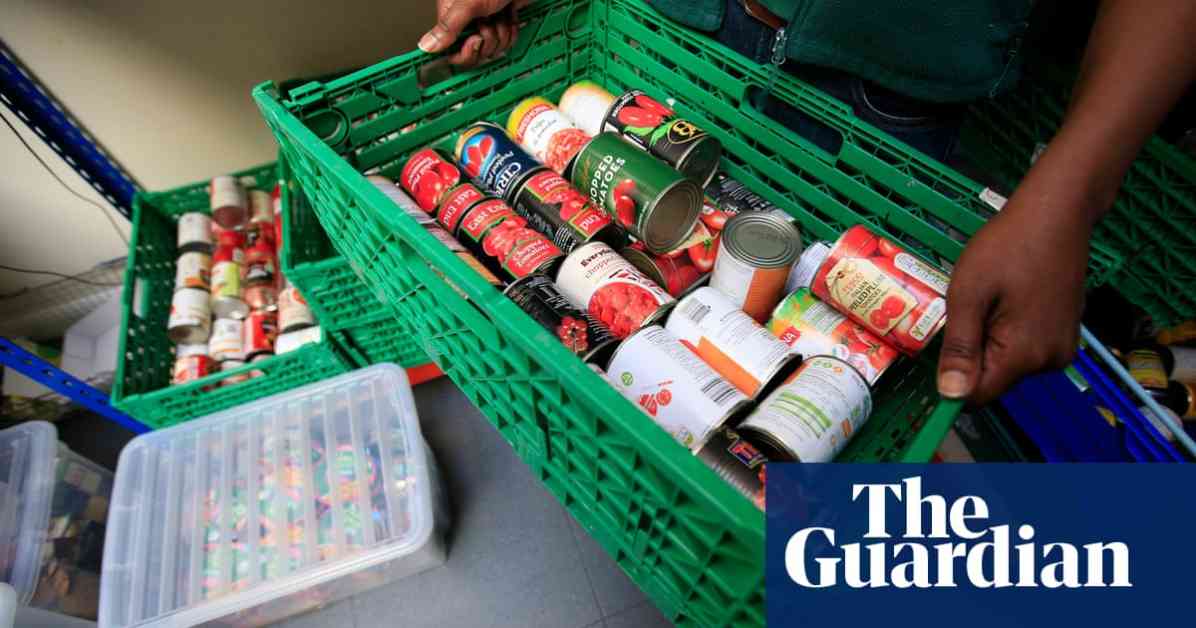More than 9 million people in the UK are struggling with poverty and hunger to the point where they may have to rely on charity food handouts, according to a recent report by the charity Trussell. The study found that the Labour party would not be able to fulfill its promise to eradicate the “moral scar” of food banks unless it addressed the issue of low household incomes in this vulnerable group, which makes up one in seven of the population.
The report identified 1 million more individuals living in “hunger and hardship” – with incomes at least 25% below the poverty line – compared to five years ago, and nearly 3 million more than two decades ago. This significant increase in deep poverty has led to record levels of food bank usage in recent years.
Trussell’s chief executive, Emma Revie, expressed concern over the high levels of food bank need in 2024 and emphasized the importance of not allowing this situation to become the new normal in society. Children, in particular, are at risk of experiencing hunger and hardship, with one-fifth of all UK youngsters falling into this category. Larger families with three or more children are also facing a high risk of relying on charity food assistance.
While Trussell did not call for the immediate abolition of the two-child benefit limit, the charity acknowledged that removing this policy could help reduce child poverty levels in larger families. However, addressing the needs of most individuals at risk of food bank usage would require additional measures beyond this change.
The chancellor is expected to resist calls to abolish the two-child limit due to the financial implications. Trussell believes that reforming the UK’s benefits system is crucial to reducing food bank dependency. The charity has proposed protecting the incomes of 2.2 million people on universal credit with monthly deductions for loans and debts, as well as 120,000 households affected by the benefit cap.
According to the study, the majority of people facing hunger and hardship are in households where at least one person is employed. Additionally, nearly 40% of individuals in households receiving universal credit are experiencing food insecurity.
Trussell, previously known as the Trussell Trust, operates the UK’s largest food bank network, distributing a record 3.1 million food parcels last year. While the charity aims to eliminate the need for food banks, it emphasizes the importance of immediate action to address the root causes of poverty and hunger in the country.
Labour’s 2024 election manifesto includes a commitment to ending mass dependence on emergency food aid and implementing reforms to tackle child poverty. Policy experts stress the urgency of government intervention to alleviate the widespread hardship experienced by many individuals and families.
In response, a government spokesperson highlighted efforts to combat child poverty through various initiatives, including the household support fund and a review of universal credit. The government aims to address inequality and create opportunities for all residents across the UK.












